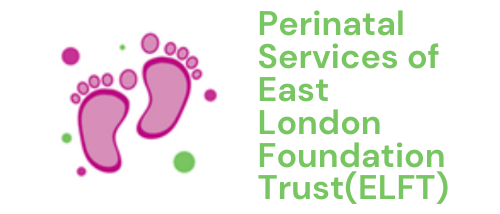About my role:
I work alongside the multidisciplinary team to support women with their mental health during pregnancy and after birth. As a social worker, I am particularly aware of the impact of social stressors (such as domestic abuse or homelessness) on mental health, especially during the perinatal period. My work might include: risk assessment, safety planning, and advocacy and information regarding housing and benefits entitlements. I can also help to connect women to local community groups, English lessons, food banks and baby banks, as well as providing information around children's social care or family court processes. I run a group for women who have experienced domestic abuse, called the Freedom Programme, and can also offer one to one support for women recovering from abuse. I work separately to children's services, as I am an adult's social worker based within the perinatal mental health team.
Childrens Social Care:
Children's social workers can be involved with families for a wide range of reasons. It is possible to self-refer if you feel you need this support, or sometimes professionals working with you may feel it is necessary to make this referral (but would always discuss this with you first).
Children's social care involvement typically begins with an initial assessment. This helps to understand what the difficulties are that you and your family are currently facing and what support you might need. A children's social worker would usually phone you and then arrange to meet face to face if this is possible, to ask some questions and get to know a little more about your family.
There are two main categories of children's social care input:
1) 'Children in Need'
This is a voluntary arrangement, through which local authorities can provide support to children and families in line with a pre-agreed 'child in need plan'. It is sometimes referred to as 'Section 17' - referring to Section 17 of the Children Act (1989).
This would include meetings (usually every 3 months) with professionals such as health visitors, schools, or mental health teams to consider how professionals from different sectors can work together with you to promote the wellbeing of your children. This would be written on to a 'Child in Need plan'. You can find out more information about this process on the Child Law Advice website.
2) 'Child Protection'
This is a statutory intervention, meaning this can happen without your consent. It is sometimes referred to as a 'Section 47', referring to Section 47 of the Children Act (1989). It means that your child has been assessed to be suffering (or likely to suffer) significant harm. An initial child protection conference would determine whether a child protection plan is required - this would typically list some actions that are required to ensure the child is safe.
You can find out more about child protection conferences and plans on the Child Law Advice Website.
Don't panic!
Some parents may have anxieties about children's social care interventions, fearing that this means their children will be removed from their care. In reality, this happens very rarely. Instead, it is the goal of children's social care to work alongside families, to empower and support them. If you have worries or questions about this process, please speak to your social worker, or a professional you are working with to discuss this. You can also access information and support regarding child protection procedures on the Family Rights Group Website.
